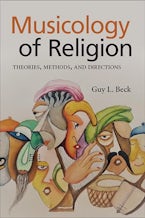- Home
- religion
- philosophy
- Daoism

Daoism
A Contemporary Philosophical Investigation (1st Edition)
By: Livia Kohn
214 Pages
- Paperback
- ISBN: 9781138304949
- Published By: Routledge/Taylor & Francis Group
- Published: October 2019
$39.95
Daoism is one of the oldest philosophical and religious traditions in China, and the richness and sophistication of its origin and development is made manifest in Livia Kohn’s latest work, Daoism: A Contemporary Philosophical Investigation. It is an eloquent and comprehensive introductory work that aims to convey the full history and development of Daoism, along with Kohn’s original interpretation of the tradition. As a leading scholar in the field, Kohn’s familiarity with the current debates in the study of Daoism is clear. She insightfully historicizes the seven periods of Daoist development, revealing a gradual change in the understanding of key concepts of Daoism. Echoing the Cambridge School (a school of intellectual history that concerns the historical and intellectual context of the discourse at a particular historical period), Kohn pays attention to the history, multiplicity, and richness of Daoist ideas, casting new light on the basic principles and forms of Daoism.
Kohn scrutinizes the traditional periodization of Daoist development, developing an alternative (and original) account of the tradition’s transitional stages that profoundly revises the intellectual history of Daoism. Through her careful, micro-scale historical analysis, Kohn identifies subtle changes in Daoism, paying particular attention to the reception and understanding of certain beliefs, ideas, and principles. The conventional “five phases” model is widely recognized among scholars who work on the history of Daoism. This model includes antiquity or the classical period, later Daoism (Former Han dynasty), traditional Daoism (Tang dynasty), new Daoism (Song dynasty), and the final phase of Daoism (since the Ming and Qing dynasties). Kohn argues that there are at least two more stages that are substantially different from the other stages, namely “a transitional stage between classical and incipient organized Daoism that emphasizes the cataclysmic changes of the Han dynasty” and a stage “subdividing new Daoism into a structuring phrase during the Song and Yan and one of increasing popularization since the Ming” (5-6). Throughout the rest of the book, Kohn adopts this seven-phases model to elaborate on her reading of the history of different concepts.
Instead of using a chronological approach that focuses on each historical figure individually and lays out the development of Daoism linearly, Kohn instead handpicks sixteen different concepts, such as the “world,” “ultimate reality,” and the body. These ideas are essential to the Daoist worldview and are widely shared among different branches of Daoism. As these ideas develop, they constantly change the landscape of Daoism.
It’s worth noting that Kohn’s book does not adopt a narrow sense of Daoism. She clarifies this umbrella term in the introduction, indicating that her usage of “Daoism” includes three separate groups: Literati Daoists, communal Daoists, and Daoists who are merely concerned with personal spiritual development or the attainment of perfect health. Similar to the distinction between theologians and religious practitioners, literati Daoists and communal Daoists are two different groups of people. The former are not pious followers of the Daoist faith. Rather, their motivation for studying Daoist texts is driven by curiosity and intellectual concern. In contrast, Communal Daoists consider the Daoist view as religious truth; they participate in the rituals of Daoism and even worship Laozi as the embodiment of Dao. The third group treats the Daoist view as a means to a personal end, such as extended longevity and cosmic oneness, often with the aid of Chinese medicine, martial arts, and sometimes even sexual activities. Unlike many Chinese philosophers—such as Cheng Chung-ying or Liu Xian-gan, who strongly defend the strict distinction between the philosophical and religious works of Daoism, and who argue that a philosophical investigation should pay attention only to the former—Kohn’s work is comparatively more inclusive, engaging with both philosophical and religious interpretations of Daoism.
Kohn uses the sixteen different concepts she identifies to present the various aspects of Daoism. She briefly investigates each concept historically and analytically to show the dynamic history of these ideas. More importantly, the organization of the book facilitates her goal of advancing a dialogue between Daoism and Western philosophy. For instance, the first three ideas she discusses are categorized under the title “reality,” which clearly corresponds to the western conception of metaphysics. The other concepts are similarly categorized under classes like “humanity,” “community,” “ethics,” and “perfection.” Although Kohn does not frame her book as an explicit dialogue between East and West, her method of presentation shows that the structure of Daoism is, to a certain extent, analogous to Western philosophy, with its concern for metaphysics, ethics, political philosophy, and so on. This also explains why the subtitle of this book is “a contemporary philosophical investigation.” Essentially, Kohn analyzes the various ideas and ethical views of Daoism from the perspective of Western philosophy, providing us with valuable insights and intellectual resources to address universal questions.
Samuel (Yu-sum) Lee is a graduate student at the New School for Social Research.
Samuel (Yu-sum) LeeDate Of Review:October 31, 2022











